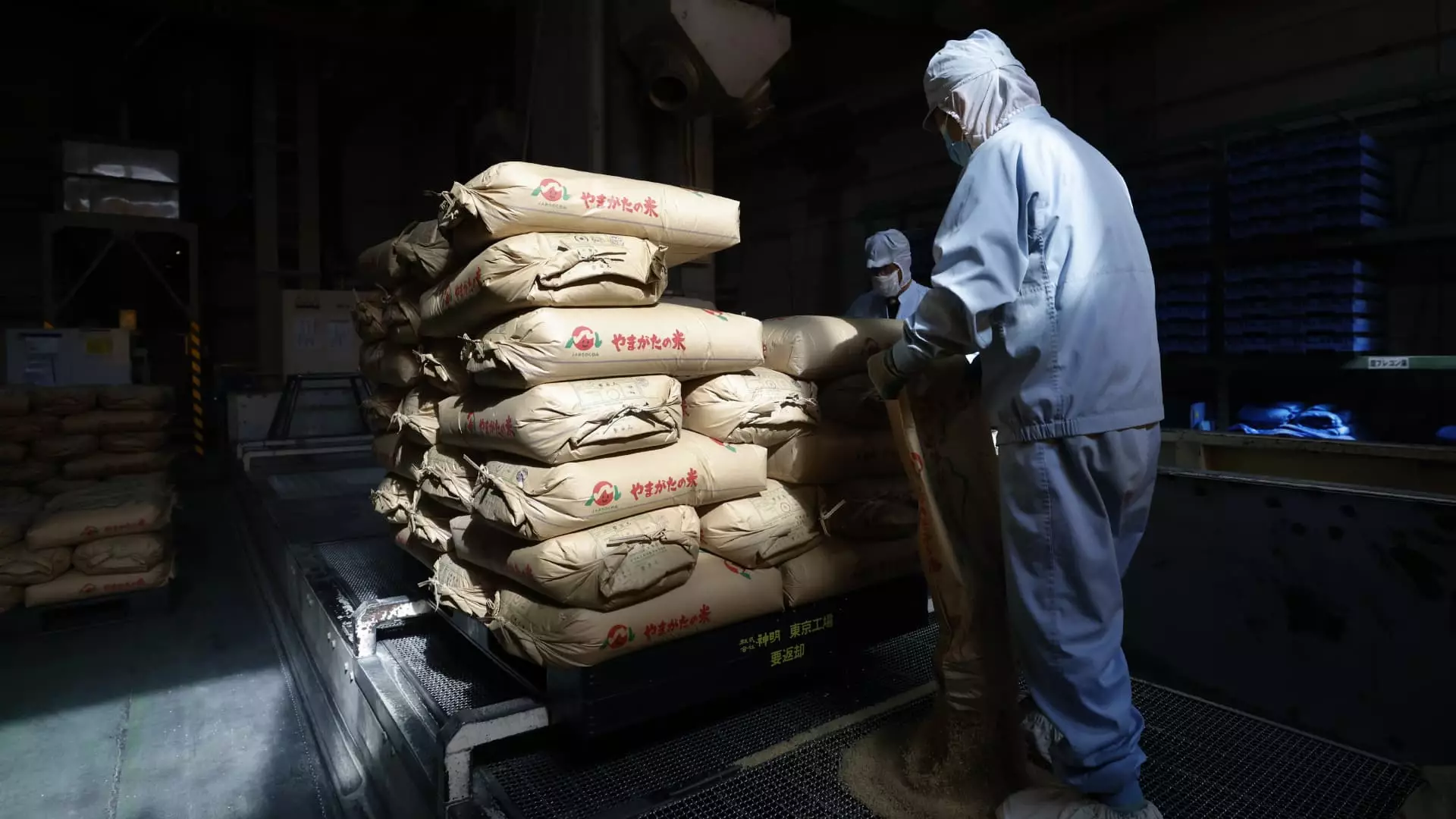In recent months, the financial landscape within Japan has been rocked by an upheaval of epic proportions. Rice prices have surged more than 100% year-on-year, marking an alarming milestone not seen in over half a century. This staggering increase—101.7% in May alone—follows closely on the heels of a 98.4% rise in April and an equally concerning 92.1% hike in March. Such astronomical numbers should not merely be seen as statistical anomalies; they represent a broader narrative unfolding within Japan’s economy that demands immediate attention.
As a staple food that has sustained the populace for centuries, rice is far more than just a dietary staple in Japan. It symbolizes culture, tradition, and lifestyle. The government’s decision to release emergency stockpiles to mitigate the price surge underscores the critical state of affairs. In moments like these, the questions arise: How did we reach this point? And just how sustainable is our food security?
Inflation: An Unyielding Shadow
Japan is also grappling with an inflation rate that has become an omnipresent specter: 3.7% in May, the highest since January 2023. Adding to the puzzle, this figure surpassed economists’ expectations, as the core inflation rate continues to breach the Bank of Japan’s target of 2% for an astonishing 38 consecutive months. It would be naive to dismiss the significance of rice, which accounts for about 50% of core inflation, as just another data point. The reality is stark: Japan’s inflationary spiral is intertwined with the prices of essential goods, and rice stands at the crux of this dilemma.
Marcella Chow of JP Morgan Asset Management articulates a compelling argument that household spending could rebound if rice prices stabilize, particularly if this extends to processed foods containing rice. Yet this optimism feels a bit misplaced when confronting the hard facts: rising food prices are merely symptoms of a much deeper malaise. How does one rebuild consumer trust and expendable income when the foundation—affordable food—is crumbling beneath their feet?
The Benevolent Yet Ineffective Hand of Government
Recent government maneuvers to temper the price of rice beg the vital question of effectiveness. While the release of stockpiles may provide temporary relief, it does little to solve the underlying systemic issues. With our reliance on rice as a cultural staple, we must ask whether these interventions are not merely Band-Aids on an infected wound.
Perhaps the most unsettling aspect of this situation is that experts are not in consensus regarding the trajectory of these inflationary pressures. Kei Okamura from Neuberger Berman indicated that although these price pressures may lessen, external factors, particularly geopolitical tensions, could further complicate matters. If we consider the interconnected nature of economies today, any shifts in energy prices stand to affect an already delicate equilibrium.
Where To From Here?
The Bank of Japan has held its interest rates steady at 0.5%, a decision seemingly predicated on the belief that inflation will eventually recede. However, this passive approach raises eyebrows. What will it take for the central bank to act decisively? Governor Kazuo Ueda’s insistence that rates will rise only when there’s “conviction” about inflation stability suggests a worrying inertia. The economy has recently shrunk by 0.2% quarter-over-quarter, signaling a contraction that could spiral if bold action isn’t taken soon.
The status quo is unsustainable, and ignoring the increasing financial strain on the average household feels akin to placing a bandage on a gaping wound. Japanese society appears to be at a crossroads, where incremental measures will simply not suffice. It’s crucial for policymakers to understand that investing in sustainable agricultural practices and diversifying food sources could provide a smarter long-term strategy to mitigate these recurrent crises.
Ultimately, veteran eyes trained on this unfolding drama have every reason to be wary. As Japan’s economy inch towards recovery, one must wonder if resilience lies in bold reforms or stagnant repetition of measures that have already proven ineffective. The clock is ticking, and while rice may be just a grain, its repercussions echo throughout the entire psyche of a nation under stress.

Leave a Reply